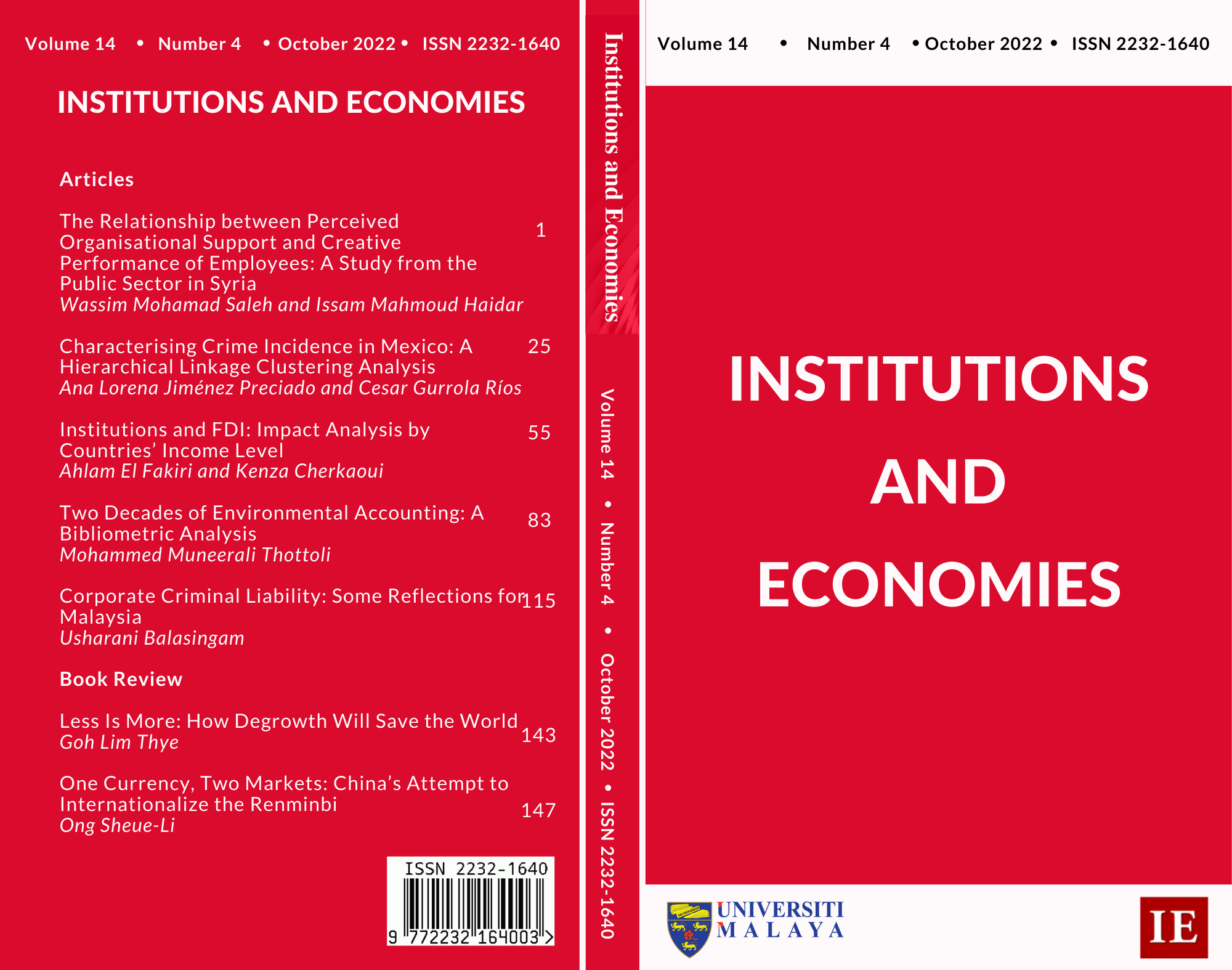Institutions and FDI: Impact Analysis by Countries’ Income Level
DOI:
https://doi.org/10.22452/IJIE.vol14no4.3Keywords:
Foreign direct investment, Institutions, ; System GMM, Developing countries, Developed countriesAbstract
This paper scrutinises the relationship between foreign direct investment (FDI) and institutional quality using panel data for 44 high-, 39 upper middle-, 23 low- and 35 lower middle-income countries over the period 2000 to 2017. We revisit the relationship by using a composite institutional index of World Governance Indicators (WGI), constructed using principal component analysis (PCA). Further, we extend the analysis to estimate the impact of the different dimensions of WGI indicators on FDI flows, using the generalised methods of moments (GMM). Our empirical findings for developed countries suggest that the institutional index is a robust determinant of FDI inflows in high income countries, whereas it is not significant in upper-middle income countries. Dimensions, such as rule of law, regulatory quality and control of corruption are key determinants of FDI flows to high-income countries, whereas none of the dimensions is significant in upper middle-income countries. Findings for developing countries, specifically lower middle-income countries, indicate that the overall index as well as individual dimensions are insignificant because of the poor quality of institutional framework. Ceteris paribus, politically stable economies endowed with an efficient and a credible government and strong regulatory framework tend to attract FDI flows into low-income countries.
Downloads
Downloads
Published
How to Cite
Issue
Section
License
Submission of a manuscript implies: that the work described is original, has not been published before (except in the form of an abstract or as part of a published lecture, review, or thesis); that is not under consideration for publication elsewhere; that its publication has been approved by all co-authors, if any, as well as tacitly or explicitly by the responsible authorities at the institution where the work was carried out. Transfer of copyright to the University of Malaya becomes effective if and when the article is accepted for publication. The copyright covers the exclusive right to reproduce and distribute the article, including reprints, translations, photographic reproductions, microform, electronic form (offline and online) or other reproductions of similar nature.
An author may self-archive the English language version of his/her article on his/her own website and his/her institutions repository; however he/she may not use the publishers PDF version which is posted on www.ijie.um.edu.my. Furthermore, the author may only post his/her version, provided acknowledgement is given to the original source of publication and a link must be accompanied by the following text: The original publication is available at www.ijie.um.edu.my.
All articles published in this journal are protected by copyright, which covers the exclusive rights to reproduce and redistribute the article (e.g. as offprint), as well as all translation rights. No material published in this journal may be reproduced photographically or stored on microfilm, in electronic database, video disks, etc., without first obtaining written permission from the publishers. The use of general descriptive names, trade names, trademarks, etc., in this publication, even if not specifically identified, does not imply that these names are not protected by the relevant laws and regulations.
The copyright owners consent does not include copying for general distribution, promotion, new works, or resale. In these cases, specific written permission must first be obtained from the publishers.








